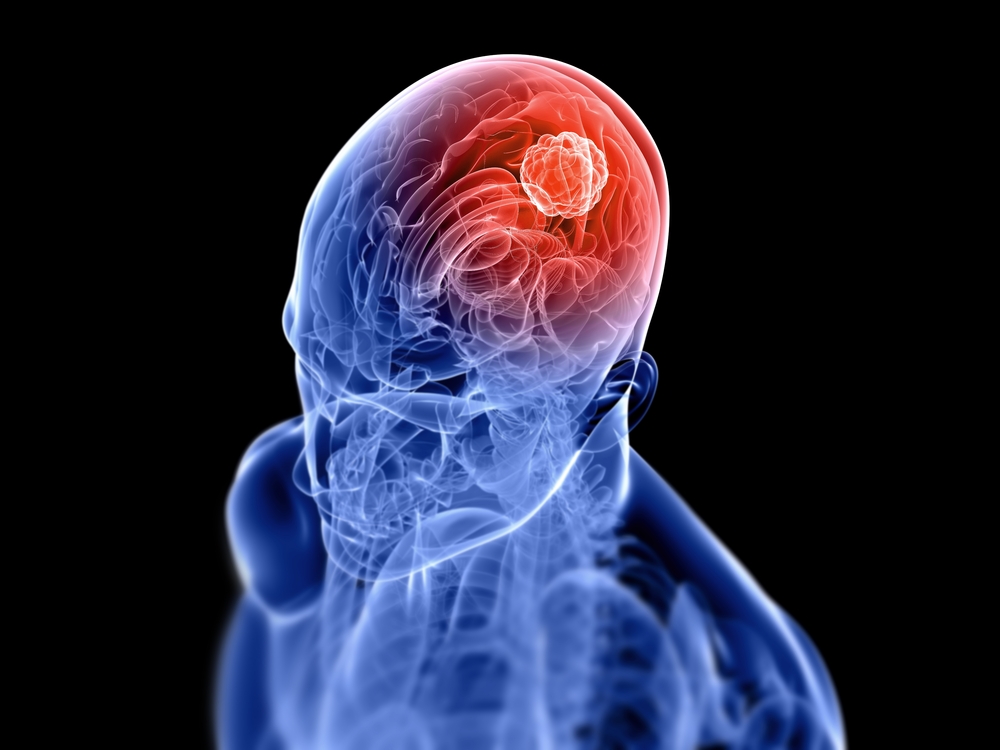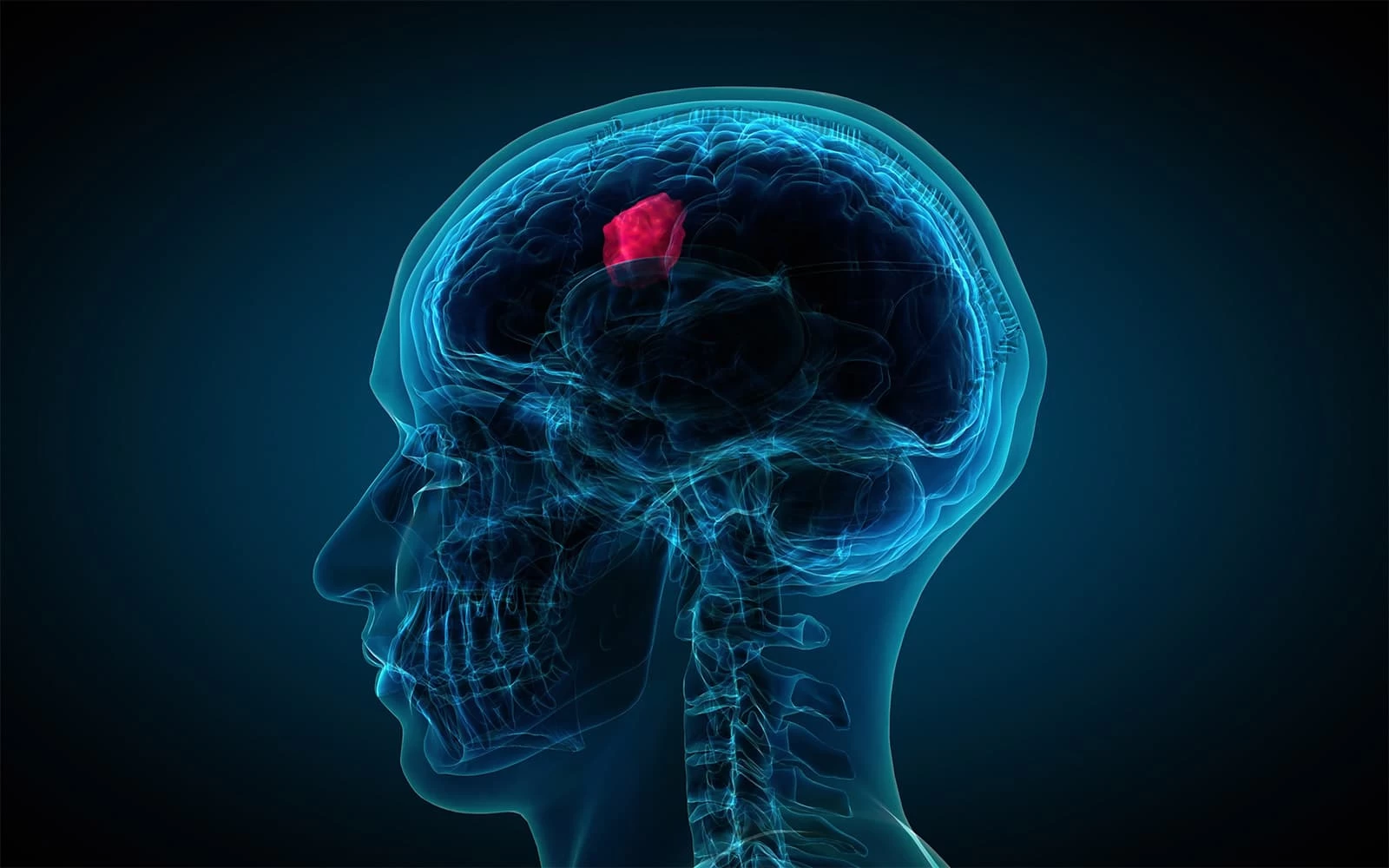A brain tumour is a mass of abnormal cells in the brain that usually multiplies in an uncontrollable way.
A brain tumour is a mass of abnormal cells in the brain that usually multiplies in an uncontrollable way. The tumour can either be cancerous (malignant) or non-cancerous (benign). When either of these tumour types – benign or malignant grow rapidly, they build pressure inside the skull which causes damage to the brain.
Brain tumours are graded from 1 to 4, based on certain factors, like, their aggressiveness to multiply or their likeliness to come back after the treatment, etc.
Benign brain tumours are low grade (grade 1 or 2), which means they grow slowly and are less likely to return after treatment. Whereas, malignant brain tumours are high grade (grade 3 or 4) and they either originate in the brain from the brain cells, the membranes that surround the brain, nerve cells or glands (primary tumours) or spread into the brain from another organ such as breast, skin or lungs, etc. (secondary tumours). Also, known as ‘metastatic brain tumours’, malignant tumours are more likely to grow back post treatment.


The symptoms of a brain tumour may vary depending on the location and size of the tumour. One might experience noticeable symptoms when a growing tumour is exerting pressure on the brain tissue. Or, the symptoms may only develop slowly over time. However, some commonly noticed symptoms of a brain tumour are:
* Persistent headache
* seizures (fits)
* nausea, vomiting and drowsiness
* mental/behavioural changes, such as memory loss or personality changes
* progressive weakness
* paralysis, vision or speech problems
* changes in the ability to hear, taste, or smell
Refer to a neurologist for further assessment and tests, in case the symptoms persist.
People devoid of any sex or age, including young children, can develop a tumour in their brain, although they tend to be more common in elderly. Only about 10 percent of all tumours are genetically inherited, or hereditary.
Also, risk for most types of brain tumours increases with age. Any previous radiotherapy treatment to the head further increases your risk factor.
The main treatment for most brain tumours is through minimally invasive surgery, which aims to remove as much abnormal tissue as possible and that too without causing any damage to the surrounding tissues of the brain.
While the location of some tumours allows for easy and safe removal, other tumours may be located in an area that limits how much of the tumour can be removed. So, further treatment with radiotherapy or chemotherapy may be necessary to completely destroy any cancerous cells left behind.
For most benign tumours, treatment is often successful and a full recovery is possible. However, regular follow-up appointments are usually recommended to monitor any cancerous cells coming back.
Diagnosis of a brain tumour begins with a physical exam and a look at your medical history. Besides, your neurosurgeon may also evaluate your muscle strength, coordination, memory, etc. Also, the diagnosis could be made on the basis of certain tests which may include:
*CT Scan of the Head
*MRI of the Head
*Angiography
*Brain Scan
*Skull X-Rays
*Biopsy
Copyright © 2020. All Rights Reserved.
Designed and Developed by Easy Solution 360